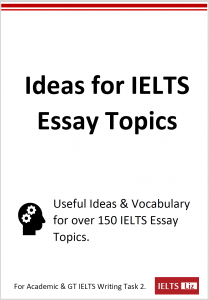This exercise is based on matching paragraph information for IELTS reading. This reading exercise is not difficult and could be classed as medium in level. It’s a useful practice lesson.
Skim read the article and then look through the statements below. Take time to think about the information in the statements and consider possible paraphrases for vocabulary before you attempt to locate information.
Using Web Based Translations in Medical Communication
A) A complex medical and treatment discussion with patients whose knowledge of the local language is inadequate remains challenging. After treating a child whose parents did not speak English, we resorted to the use of a web based translation tool. We were unsure as to whether Google Translate was accurately translating our complex medical phrases. We aimed to evaluate the accuracy and usefulness of Google Translate in translating common English medical statements.
B) Ten commonly used medical statements were chosen by author consensus. These were translated via Google Translate to 26 languages. Translations only were sent to native speakers of each language and translated back into English by them. The returning English phrases were compared with the originals and assessed for meaning. Minor grammatical errors were accepted but not if the meaning was altered.
C) The results showed that of the ten medical phrases translated by Google translate and then translated back into English, 57.7% were correct and 42.3% were wrong. Out of the 26 languages used, Africa languages scored the lowest, followed by Asian languages. Western European languages were the most accurate. However, there were some serious errors discovered. For instance, “Your child is fitting” translated in Swahili to “Your child is dead”. In Polish “your husband has the opportunity to donate his organs” translated to “your husband can donate his tools”. In Mathi “your husband has had a cardiac arrest” translated to “your husband had an imprisoned heart”.
D) The conclusion drawn is that in today’s world “just google it” is considered to be the answer to everything, but for health related questions this should be treated with caution. Google Translate should not be used for taking consent for surgery, procedures, or research from patients or relatives unless all other avenues to find human translators have been exhausted and the procedure is clinically urgent.
Questions 1-7
In which paragraph (A-D) is the following information found. Letters may be used more than once.
- When calculating the results, slight mistakes in language, possibly related to syntax or structure of language, were admitted.
- It is believed that most information and help can be found on google.
- The aim was to test whether Google Translate could be used reliably for medical communication.
- Significant mistakes were found in the translations which were web based.
- The research was conducted after a situation in which a patient’s relatives did not speak English.
- The translate function is not admissible to get people’s permission for operations.
Answers
Click below for answers.
Answers- B
- “The returning English phrases were compared with the originals and assessed for meaning.” This is about analysing results.
- “Minor grammatical errors were accepted but not if the meaning was altered.”. This means that errors, such as syntax and structure of language would be fine because they weren’t related to meaning.
- Remember, you aren’t aiming to find the sentence word for word in the passage. Your aim is to understand the content of the sentence and locate similar information with the same intent in a paragraph. The difficulty with this question is the word “syntax”, which is similar to word order.
- D
- “The conclusion drawn is that in today’s world “just google it” is considered to be the answer to everything”
- A
- “We aimed to evaluate the accuracy and usefulness of Google Translate in translating common English medical statements.”
- C
- A
- D
Adapted and edited from BMJ article by Patil and Davies, December 2014 publication
All reading exercises on ieltsliz.com have been written by myself to help you prepare for your IELTS test for free.
Liz
- inadequate = lacking / deficient / not enough
- resort to = turn to / make use of
- evaluate = assess / appraise
- consensus = agreement
- minor = small / insignificant
- donate = give
- cardiac arrest = when the heart stops / ceases to function
- the conclusion drawn = the conclusion derived
- other avenues = other possibilities
- exhausted = finished
Recommended
- All IELTS Reading Lessons and Tips
- IELTS Reading Video: How to be successful with TFNG questions
- IELTS Reading: How to Improve your Score
………………………….
FREE Subscribe to get New Posts by Email





